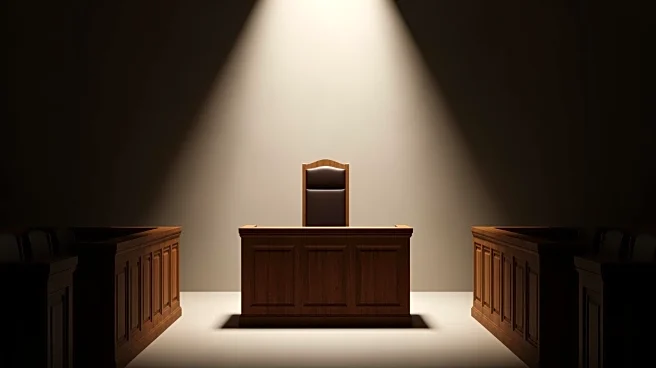What's Happening?
The Supreme Court has recently been issuing decisions on its emergency or 'shadow docket' without accompanying written opinions, leaving lower courts uncertain about how to proceed. This practice has been particularly
prevalent in cases involving President Trump's administration, such as those concerning the firing of federal commissioners, health research grants, and immigration enforcement. The lack of detailed explanations from the Supreme Court has created confusion among lower courts, which rely on these opinions to understand the legal reasoning behind the decisions. William Eskridge, a professor at Yale Law School, notes that the shadow docket has seen an unprecedented increase in activity, with at least 31 grants of emergency relief in recent months.
Why It's Important?
The Supreme Court's use of the shadow docket without written opinions has significant implications for the U.S. legal system. Lower courts are left without guidance on how to interpret and apply the law, potentially leading to inconsistent rulings and legal uncertainty. This practice also raises concerns about transparency and accountability in the judicial process, as the lack of written opinions makes it difficult to understand the Court's reasoning. The situation is particularly critical given the contentious nature of many of the cases involved, which often pertain to significant policy decisions by the Trump administration. The absence of clear legal guidance could undermine the rule of law and erode public confidence in the judiciary.
What's Next?
The continued use of the shadow docket without written opinions may prompt calls for reform, potentially involving legislative action by Congress. However, any such efforts could face challenges, including potential vetoes by President Trump. In the meantime, legal challenges to the administration's actions are likely to persist, with lower courts continuing to issue injunctions against policies they deem unlawful. The Supreme Court may eventually review some of these cases, but the lack of immediate guidance could prolong legal uncertainty. Stakeholders, including legal scholars and civil rights organizations, may advocate for greater transparency and accountability in the Court's decision-making process.
Beyond the Headlines
The Supreme Court's reliance on the shadow docket without written opinions highlights broader issues of judicial transparency and accountability. This practice may reflect a shift towards a more opaque and less deliberative judicial process, raising ethical and legal concerns. The lack of written opinions also limits public understanding of the Court's decisions, potentially diminishing trust in the judiciary. In the long term, this trend could lead to calls for structural reforms to ensure that the Court provides clear and consistent legal guidance. The situation underscores the importance of maintaining a balance between judicial efficiency and the need for transparency and accountability in the legal system.









